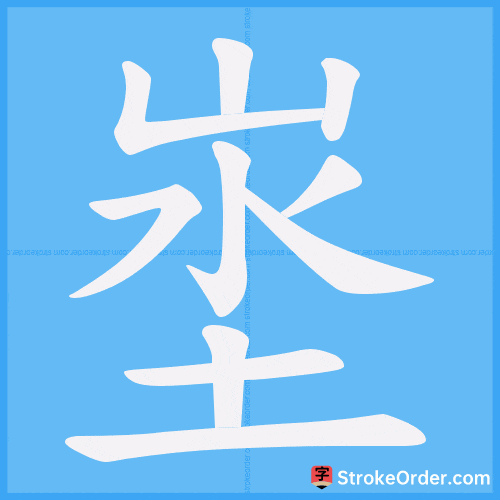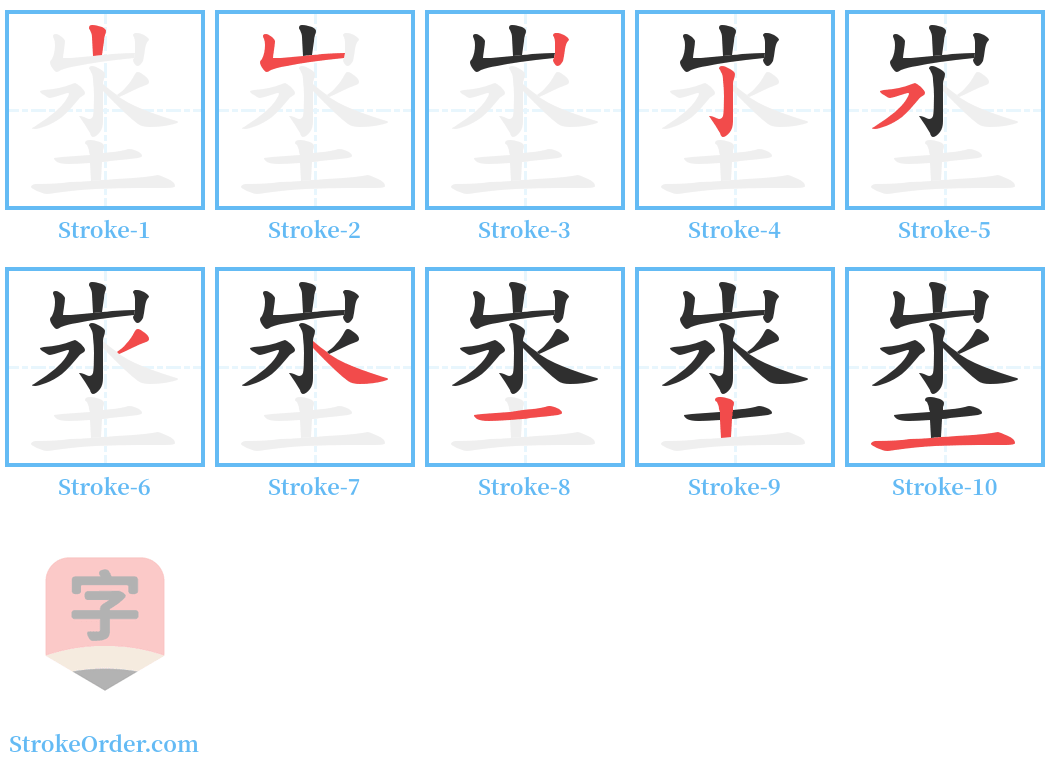埊 Stroke Order
Animated Stroke Order of 埊

Stroke Order Diagrams for 埊

Information of 埊
Pinyin
dì
Radical
土
Strokes
10 strokes
Usage
★★
Definition
Definition of 「埊」:
1. Anciently the same as "地" (ground/earth).
古同“地”。
2. A particle used between an adverbial and the main word. For example: 他认真地学习 (He studies seriously); 天气渐渐地冷了 (The weather is gradually getting cold); 有计划地安排生活 (Arrange life in a planned way). It also indicates a dynamic state, equivalent to "着" (expressing a continued action). Often attached to intransitive verbs like "立" (stand), "卧" (lie down), "坐" (sit), as in: 后妻向床上卧地不起 (The stepwife lay on the bed and didn't get up). —《舜子变文》
3. It is also used after adverbials or before complements, as in: 相看月未坠,白地断肝肠 (Looking at each other, the moon had not yet fallen, and I was heartbroken). — Tang Dynasty, Du Fu's "Yue Nu Ci" (Song of the Yue Girl).